How to Soundproof a Tent? 7 Effective Ways
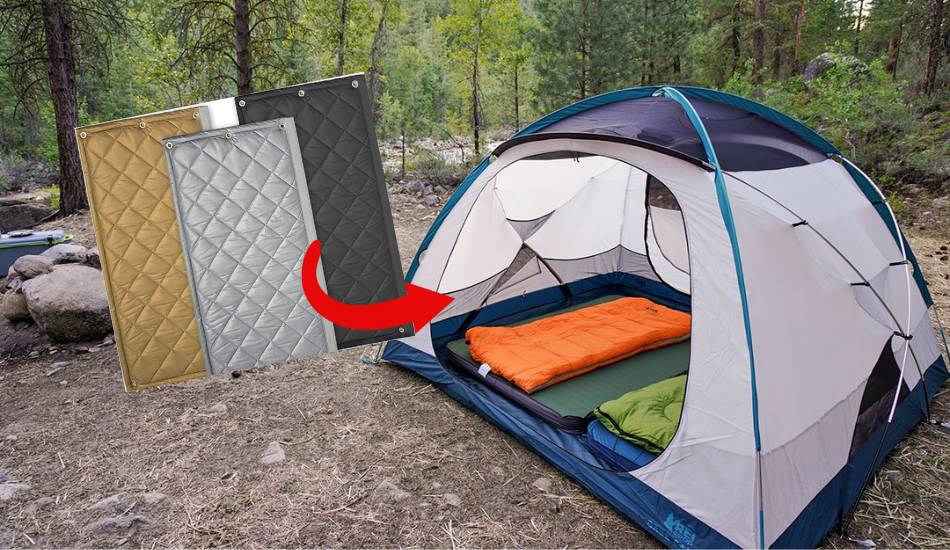
If you enjoy camping, you probably appreciate the peaceful sounds of nature. However, the noise from other campers can get on your nerves. To create a more relaxing camping experience, it is important to soundproof your tent.
Tents offer an easy and convenient way to go during a camping trip. They are lightweight and can be set up quickly by one person. But, due to their design, they do not provide much sound insulation. This isn’t a problem if you’re camping in a quiet area, but if you are in a crowded area, you’ll need to take steps to soundproof your tent. Here is how you can do it.
How to Soundproof a Tent? To soundproof a tent, you can use sound-absorbing materials like soundproofing curtains or acoustic barriers to line the inside walls. You can also add a soundproof wall outside the tent. Another option is to use earplugs or noise-canceling headphones to block out unwanted sounds.
Although it is not easy to soundproof a tent, very good results can be achieved if the right materials are used. Below we will go through this topic in more detail.
Why Should You Soundproof Your Sleeping Tent?
Camping is a great outdoor activity, but it can be a nightmare if you have loud campers around you. The noise can disrupt your peaceful camping experience, whether it’s loud music or children. To avoid this issue, you can use soundproofing materials to make your camping trip more enjoyable.
By choosing the right soundproof materials, you can drastically reduce the noise that comes from outside, so you can sleep peacefully in your tent without any problems while others are partying.
Related Article: Build a DIY Generator Soundproof Box: 9 Easy Steps
Benefits of Soundproofing Tents

Soundproofing your tent can offer a range of benefits that can enhance a camping experience. A tent has only one layer of material to protect against outside noise. With proper soundproofing techniques, you can significantly reduce outside noise.
This can lead to a more peaceful and restful night’s sleep, which is especially important if you’re camping with children.
In addition, to reducing noise, soundproofing your tent can also act as insulation, helping to regulate the temperature inside the tent. This can be especially helpful during the hotter months when the inside of your tent can become uncomfortably warm.
Another benefit of soundproofing a tent is that it can also block out sunlight, which can be helpful for those who prefer to sleep inside the tent or who have trouble falling asleep when it’s still light outside.
By blocking out the sunlight, you can create a darker sleeping environment, which can lead to a better night’s sleep. While soundproofing your tent doesn’t have to be expensive, investing in the right tools can greatly help your camping experience.
7 Ways to Soundproof a Tent
The main purpose of soundproofing a tent is to block and reduce noise that comes from outside. When you’re out camping, you want peace and quiet inside your tent so you can rest. So, let’s take a look at some easy ways to soundproof a tent:
1. Add an Acoustic Barrier
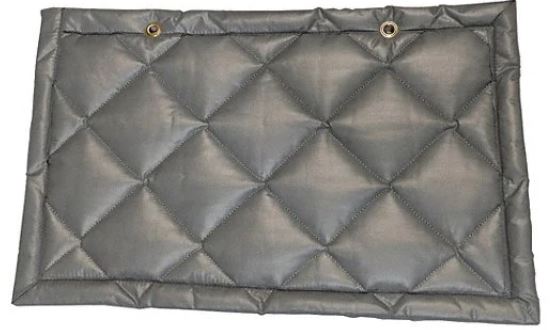
If you want to soundproof your tent, an acoustic barrier could be just what you need. While typically designed for permanent soundproofing solutions, soundproofing experts have created a temporary acoustic barrier that’s perfect for camping.
Made from layers of vinyl, fiberglass, or foam, the barrier blocks sound waves to reduce noise levels in your tent significantly. These barriers come in three sizes, so you can choose the one that best fits your tent. The barrier is approximately 1-2 inches thick and won’t take up too much space once it’s hung up.
You only need a quality rope to install the barrier and tie it through the hanging rings. Once hung, the barrier can be easily moved around to face the direction of the noise or hung on multiple walls for maximum effectiveness. And when it’s time to pack up, the barrier can be easily stored away until your next trip.
By reducing the amount of noise that enters your tent, you can enjoy a better night’s sleep and wake up feeling refreshed and ready for a day of outdoor adventures.
2. Hang Noise Reducing Curtains
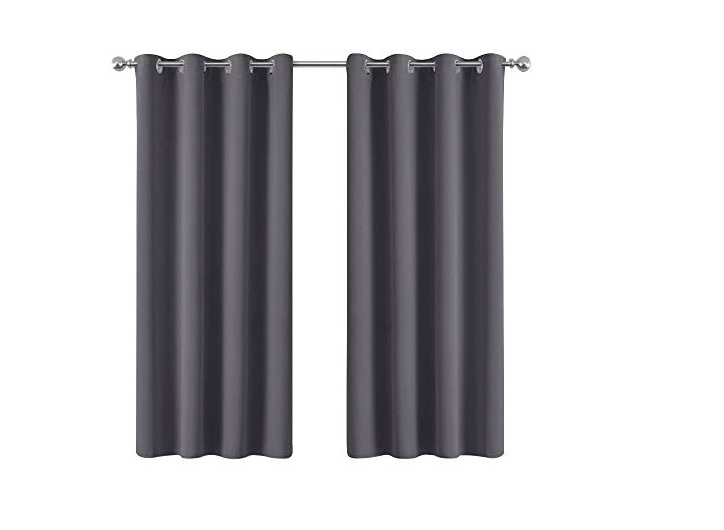
> Buy Noise Reducing Curtains HERE <
If you’re looking for an alternative to acoustic barriers, noise-reducing curtains can also help to reduce noise levels in your tent. These curtains can be draped over the walls of your tent or hung up if there is enough space. Noise-reducing curtains are designed to absorb and dampen sound waves, keeping unwanted noise away from your tent.
Another benefit of these curtains is that they can block out sunlight, allowing you to sleep even when the sun has already risen. This is particularly helpful if you’re camping in an area where the sun rises early, or if you just want to catch up on some much-needed sleep.
Related Article: How to Soundproof a Garage Door? 7 Easy Ways
3. Place Thick Carpets
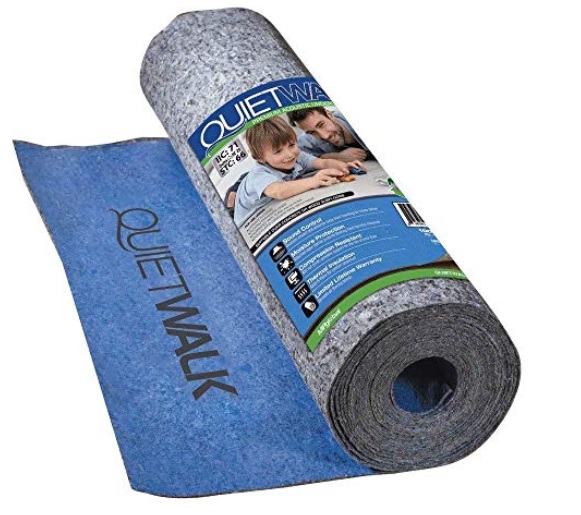
When camping, the sound waves that enter a tent can bounce in all directions, making it difficult to get a good night’s sleep. One way to stop this is by placing a thick carpet inside your tent. The added mass of the carpet blocks the sound that travels inside a tent, while the fibers in the carpet trap these sound waves.
Not only does this carpet add a good feeling inside a tent, but it also adds a more comfortable atmosphere. Combine the carpet with noise-reducing curtains to create the ultimate soundproofing experience.
4. Add Soundproof Wall Outside The Tent
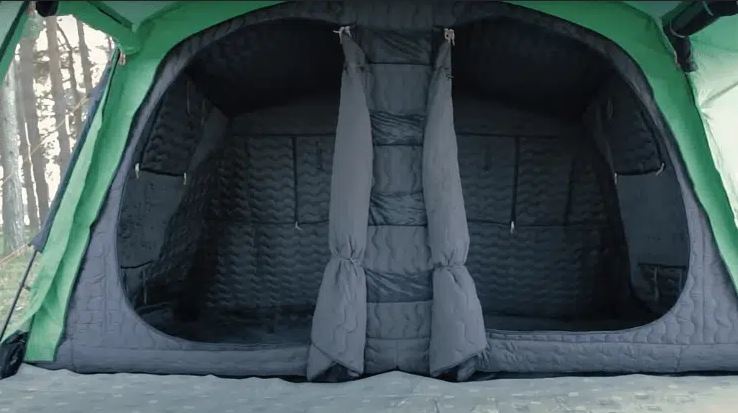
Adding a soundproof wall outside your tent is a great way to block unwanted sound from entering your tent. But it’s not always the simplest solution, since you must take it on a camping trip. It can also help prevent sounds from inside the tent.
While it can be difficult to completely soundproof an entire tent, an outside wall can drastically reduce unwanted sound inside the tent. This setup works best for those who want to block specific sound and want to ensure maximum soundproofing for their tent.
5. Buy a Soundproof Tent
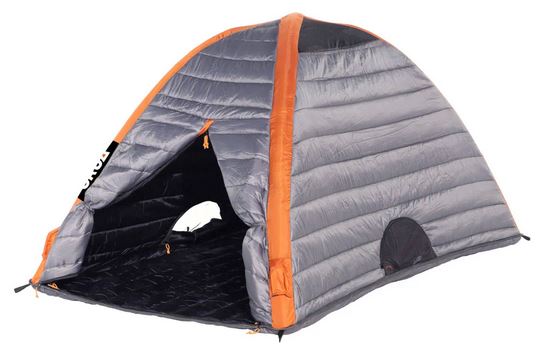
For those who prioritize soundproofing, some manufacturers offer soundproof tents that provide much better soundproofing than normal tents provide. While these tents dont block sound completely, they serve as a good foundation for adding soundproofing materials yourself.
However, they are usually more expensive than regular tents. Therefore, purchasing individual soundproofing materials may be more cost-effective than investing in an insulated tent.
6. Use Earplugs

If all else fails and you’re still having trouble with noise while camping, earplugs are always an option. They’re widely available and affordable, with disposable options being particularly budget-friendly. Wearing earplugs can be especially helpful if you want a good night’s sleep inside your tent.
7. Place Rugs Inside The Tent
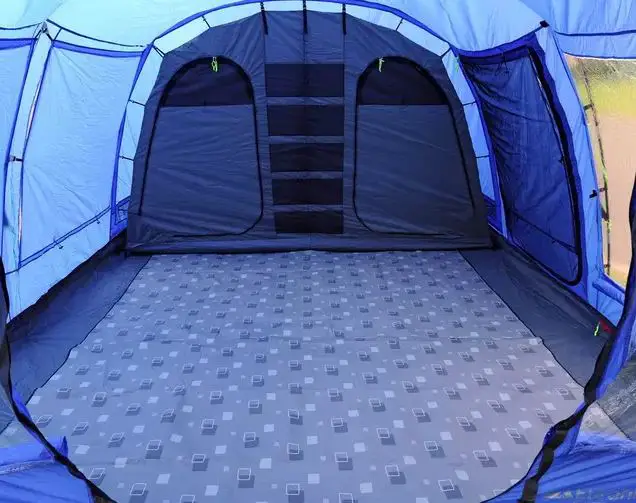
Adding a rug to your tent’s ground can help dampen the sound traveling through it. Surprisingly, sound waves tend to travel efficiently through the ground, especially low-frequency sounds. Using a thick rug is more effective in soundproofing, but a rug can also be a helpful addition to create a more comfortable and cozy tent experience.
Even with just this simple trick, campers can enjoy a noticeable difference in the sound quality inside the tent, leading to a more pleasant camping experience.
If you want to learn more, be sure to watch this youtube video:
Can A Tent Be Completely Soundproofed?
Those who want to soundproof their tent may wonder if achieving complete soundproofing is possible. Unfortunately, the truth is that limitations will always be present when it comes to soundproofing a tent. Because of that, it is impossible to soundproof a tent completely.
The main challenge is the tent’s structure. Unlike a normal room, a tent is not made of materials that are conducive to soundproofing. Thick walls filled with specific sound-absorbing materials are needed to soundproof a room, which is impossible with a tent.
However, this doesn’t mean that soundproofing a tent is pointless. The methods discussed above, such as using sound-absorbing materials, creating barriers, and using earplugs, can all be effective to vary degrees. It’s important to be realistic about the results that can be achieved with soundproofing a tent, but it can make a noticeable difference with the right approach.
Related Article: Are Landlords Responsible For Soundproofing?
FAQ: People Also Ask
What absorbs sound outdoors?
The best materials that can absorb outdoor sound are permeable expanded polypropylene, polyethylene, fiberglass, and metal, which provide an affordable and simple installation process for an effective noise control system.
How do you reduce sound to travel through walls?
To reduce sound transmission through walls, filling the wall cavities entirely with eco-friendly insulation materials is crucial. Insulation effectively absorbs sound and interrupts its passage by occupying the voids between walls and the gaps among studs. Implementing this method in interior and exterior walls can reduce noise permeation between rooms.
Final Thoughts
In this article, we cover various effective methods to soundproof your tent during a camping trip. By using some of the above methods, you can achieve good results.
However, if the noise level remains unbearable or the tent modifications don’t work, it may be best to consider moving to another location. Relocating to a quieter area is often the simplest and most efficient solution for escaping unwanted sounds.
Exploring these options and adapting them to your specific situation can create a more peaceful and enjoyable camping experience. Remember, the key is finding the right balance of soundproofing techniques that suit your unique camping preferences and requirements.
